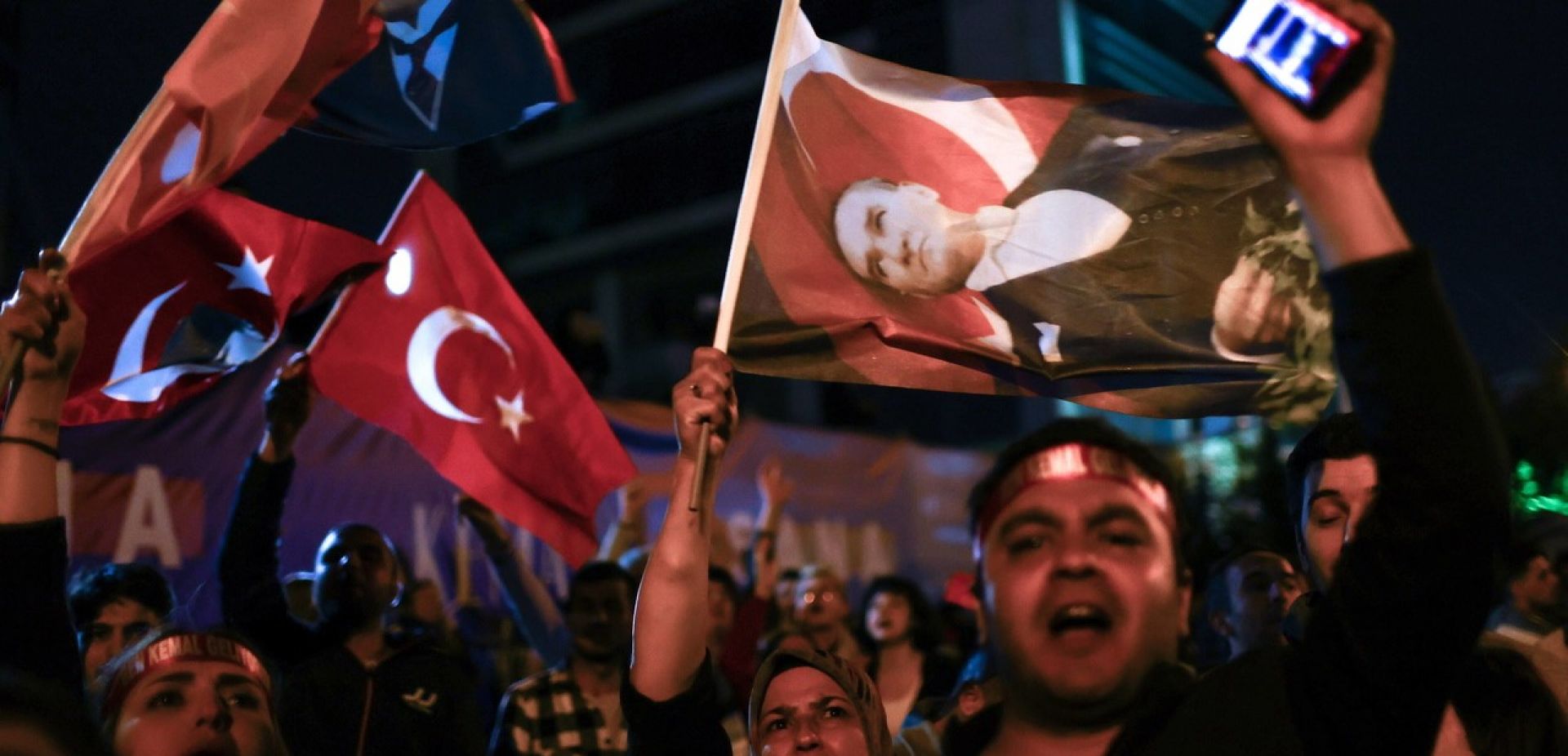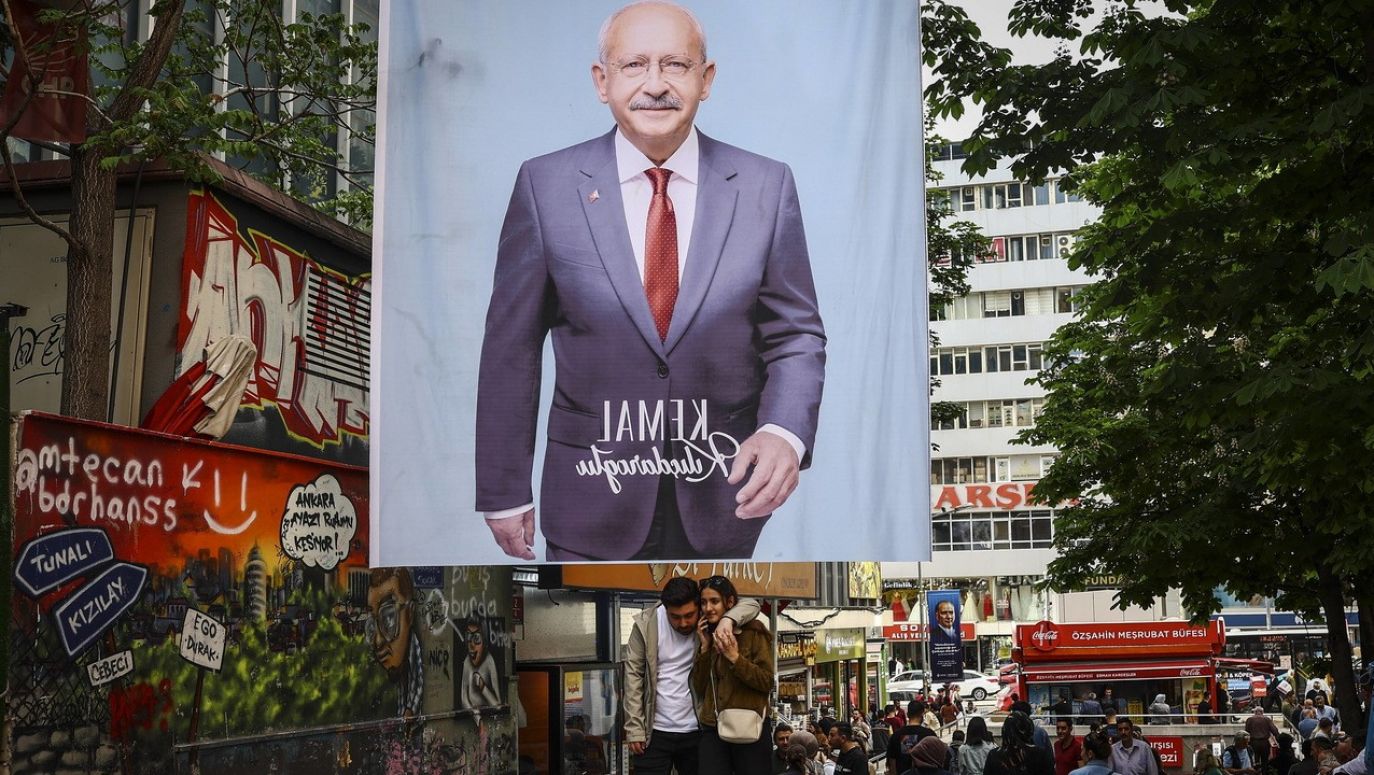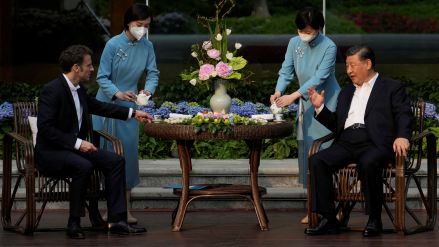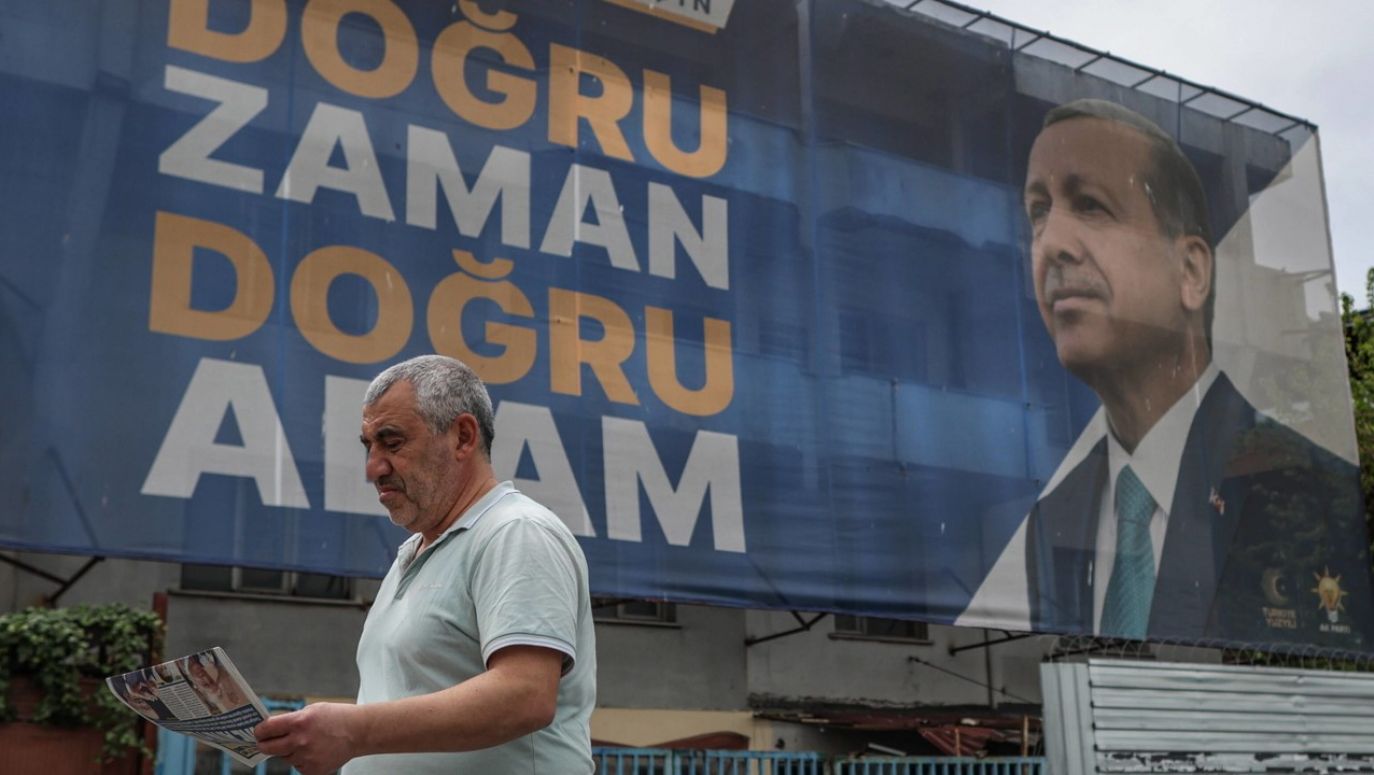In 2002, the AKP won for the first time, and since then the pendulum has swung the other way: the same party is still in power, and the instability of the mood finds expression in revolt without repercussions. Wasn't it precisely in the summer of 2016 that the citizens saved Erdogan's rule, even though they had deprived his party of some seats a year earlier, expressing their dissatisfaction with his rule? The military coup failed thanks to ordinary people.
Prayer before the expedition
On Saturday 13 May, the day before the vote, Recep Erdogan travelled to Istanbul. There, in the Byzantine temple of the Hagia Sophia, which has been a mosque again for the past three years because of him, he said a prayer. It was no the ordinary one. Erdogan prayed for prosperity in the words the Ottoman sultans used to address God before going to war. The president, called 'sultan' with great exaggeration by his supporters - although in the sultan's court he could have been grand vizier at most - treated the vote like a battlefield. Rightly so.
Was he himself surprised by the unexpectedly good result? If he was, then, as a seasoned politician - to his credit - he did not let it show. He took his success for granted, devoted a few words to democracy as usual and indicated that if he did not win, because that would be the will of the people, he would of course surrender to it. It is a little difficult, when you know his actions and ambitions, to believe this.
Prayer is the one thing, Recep Erdogan is also not neglecting earthly, more tangible forms of gaining support. Just before the election, he announced significant wage increases of up to 45 per cent in the public sector, new social benefits and free energy, and the construction of new houses in the quake-stricken region. He set the bar high, as the original figure of 200,000 houses was raised to 650,000. That many are certainly not needed, as 200,000 is also too many, but the momentum is always impressive.
 SIGN UP TO OUR PAGE
SIGN UP TO OUR PAGE

The time before the second round of voting is filled with feverish canvassing and support-seeking. A key figure has emerged as the third presidential candidate, Sinan Ogan, who unsurprisingly won more than 5 per cent of the vote and thus stepped into the role of tongue-in-cheek. Ogan, an economist and university lecturer, is described as a nationalist (he once belonged to the Nationalist Movement Party, MHP), which in the view of Western commentators is unquestionably a criticism. But, hand on heart: who among Turkish politicians is not a nationalist, not necessarily in the bad sense of the word, especially when it comes to the Kurdish issue, Cyprus or relations with Greece? It was the prime minister from the Republican CHP, Bülent Ecevit, who sent troops to Cyprus decades ago, while Recep Erdogan renewed the fight against Kurdish separatists and sent troops to Syria.
In the great shadow of the presidential election were the parliamentary polls, won by the AKP and the bloc of groups around it. Together they secured 325 seats, a majority in the 600-seat parliament, which of course works to Erdogan's advantage. They have remained in the shadows, as the president has full power in Turkey today. Parliament can do little, counts for little and, not surprisingly, does not arouse excitement or interest. President Kilicdaroglu - if he becomes president - would like to change that. At the expense of his rule.
– Teresa Stylińska
– Translated by Tomasz Krzyżanowski
TVP WEEKLY. Editorial team and jornalists




 SIGN UP TO OUR PAGE
SIGN UP TO OUR PAGE
 The time before the second round of voting is filled with feverish canvassing and support-seeking. A key figure has emerged as the third presidential candidate, Sinan Ogan, who unsurprisingly won more than 5 per cent of the vote and thus stepped into the role of tongue-in-cheek. Ogan, an economist and university lecturer, is described as a nationalist (he once belonged to the Nationalist Movement Party, MHP), which in the view of Western commentators is unquestionably a criticism. But, hand on heart: who among Turkish politicians is not a nationalist, not necessarily in the bad sense of the word, especially when it comes to the Kurdish issue, Cyprus or relations with Greece? It was the prime minister from the Republican CHP, Bülent Ecevit, who sent troops to Cyprus decades ago, while Recep Erdogan renewed the fight against Kurdish separatists and sent troops to Syria.
The time before the second round of voting is filled with feverish canvassing and support-seeking. A key figure has emerged as the third presidential candidate, Sinan Ogan, who unsurprisingly won more than 5 per cent of the vote and thus stepped into the role of tongue-in-cheek. Ogan, an economist and university lecturer, is described as a nationalist (he once belonged to the Nationalist Movement Party, MHP), which in the view of Western commentators is unquestionably a criticism. But, hand on heart: who among Turkish politicians is not a nationalist, not necessarily in the bad sense of the word, especially when it comes to the Kurdish issue, Cyprus or relations with Greece? It was the prime minister from the Republican CHP, Bülent Ecevit, who sent troops to Cyprus decades ago, while Recep Erdogan renewed the fight against Kurdish separatists and sent troops to Syria. 



